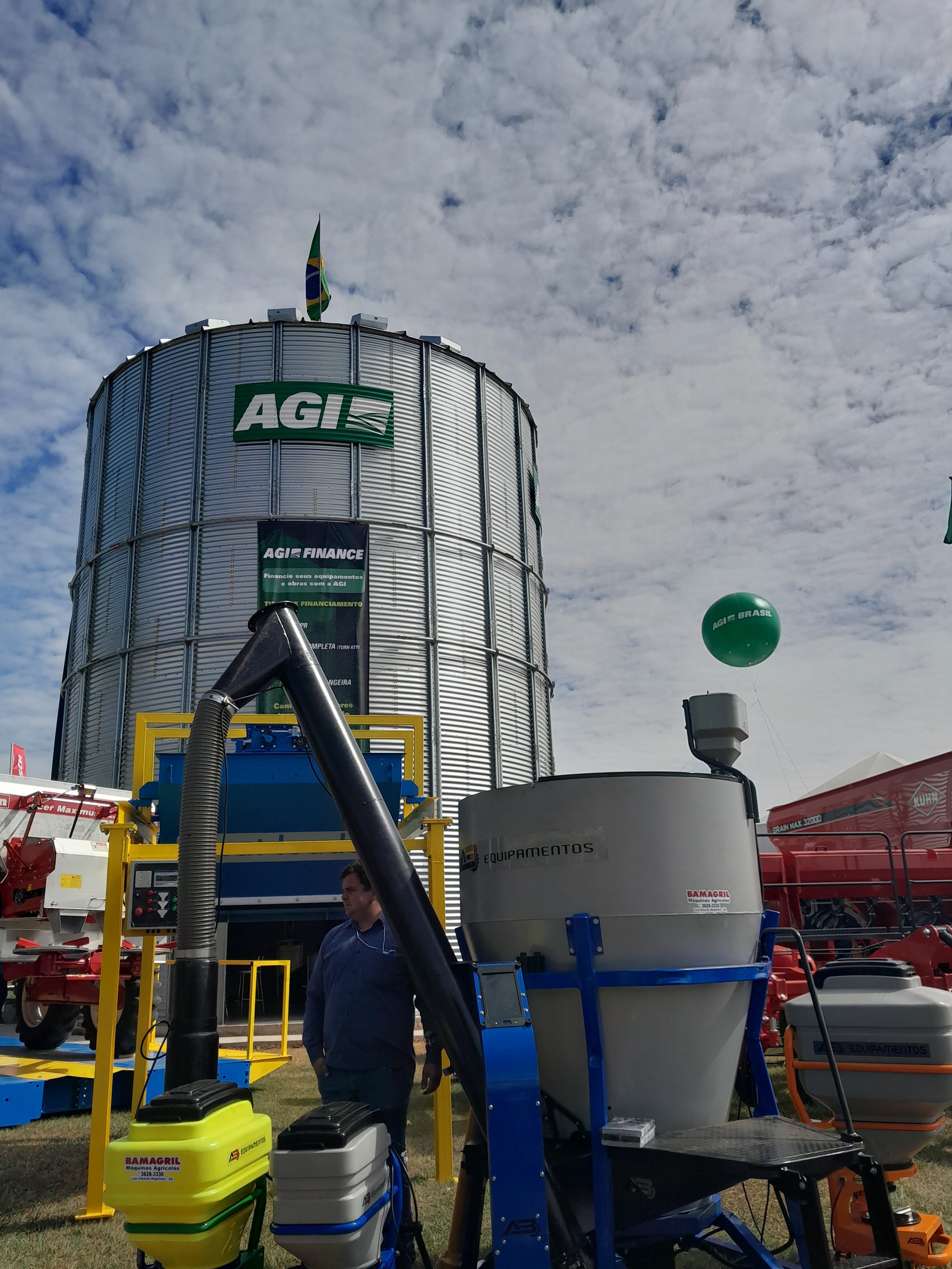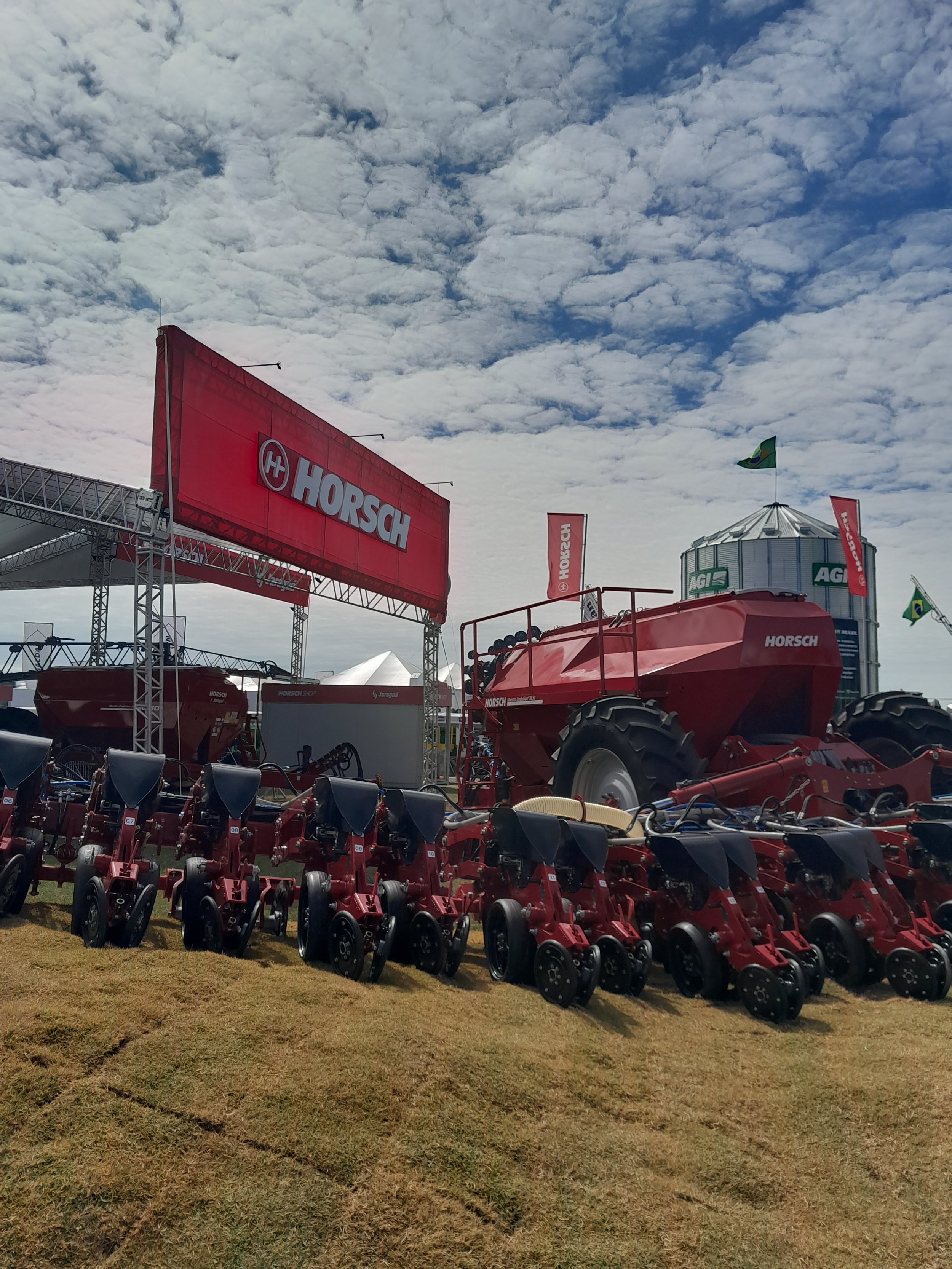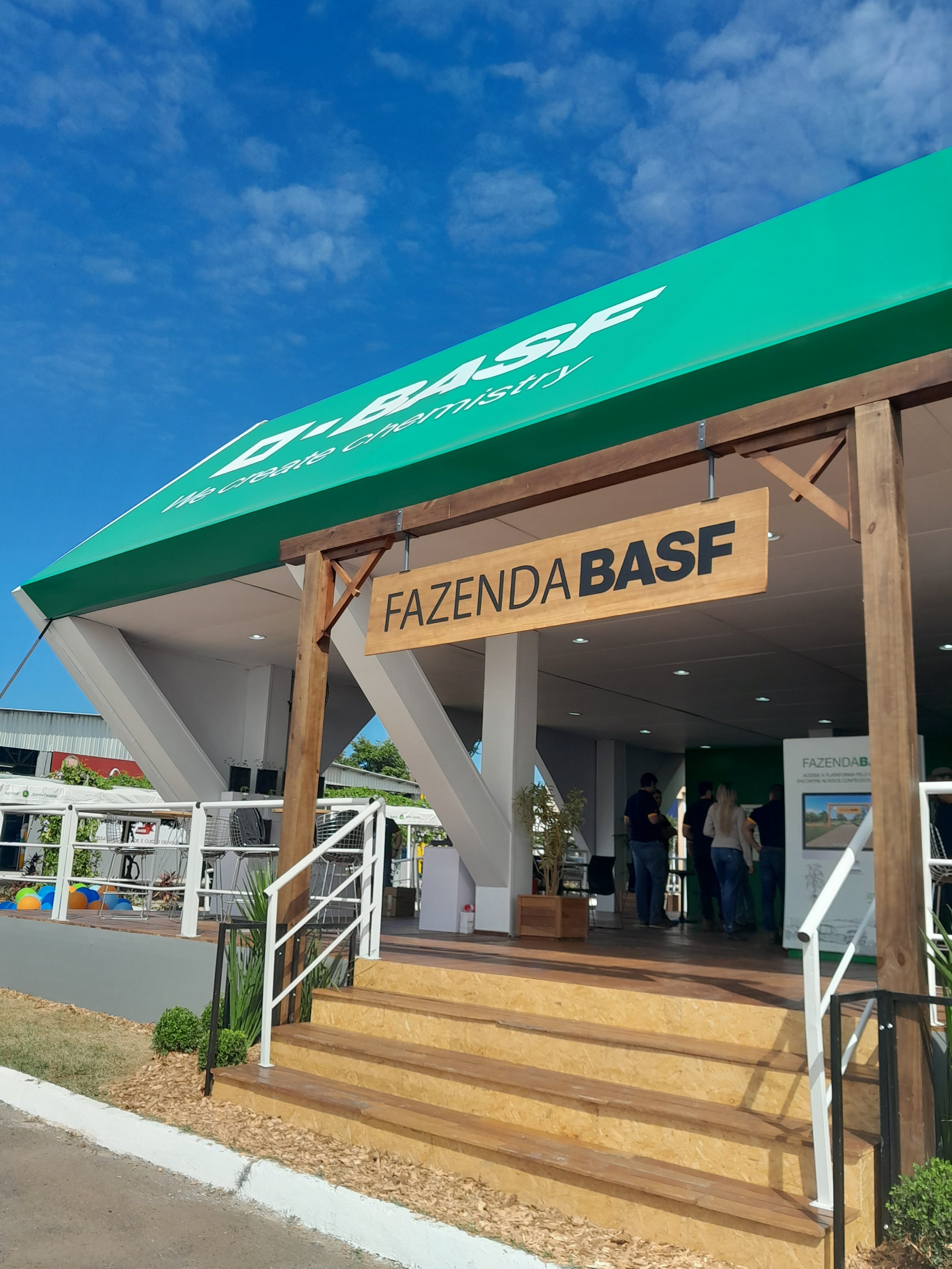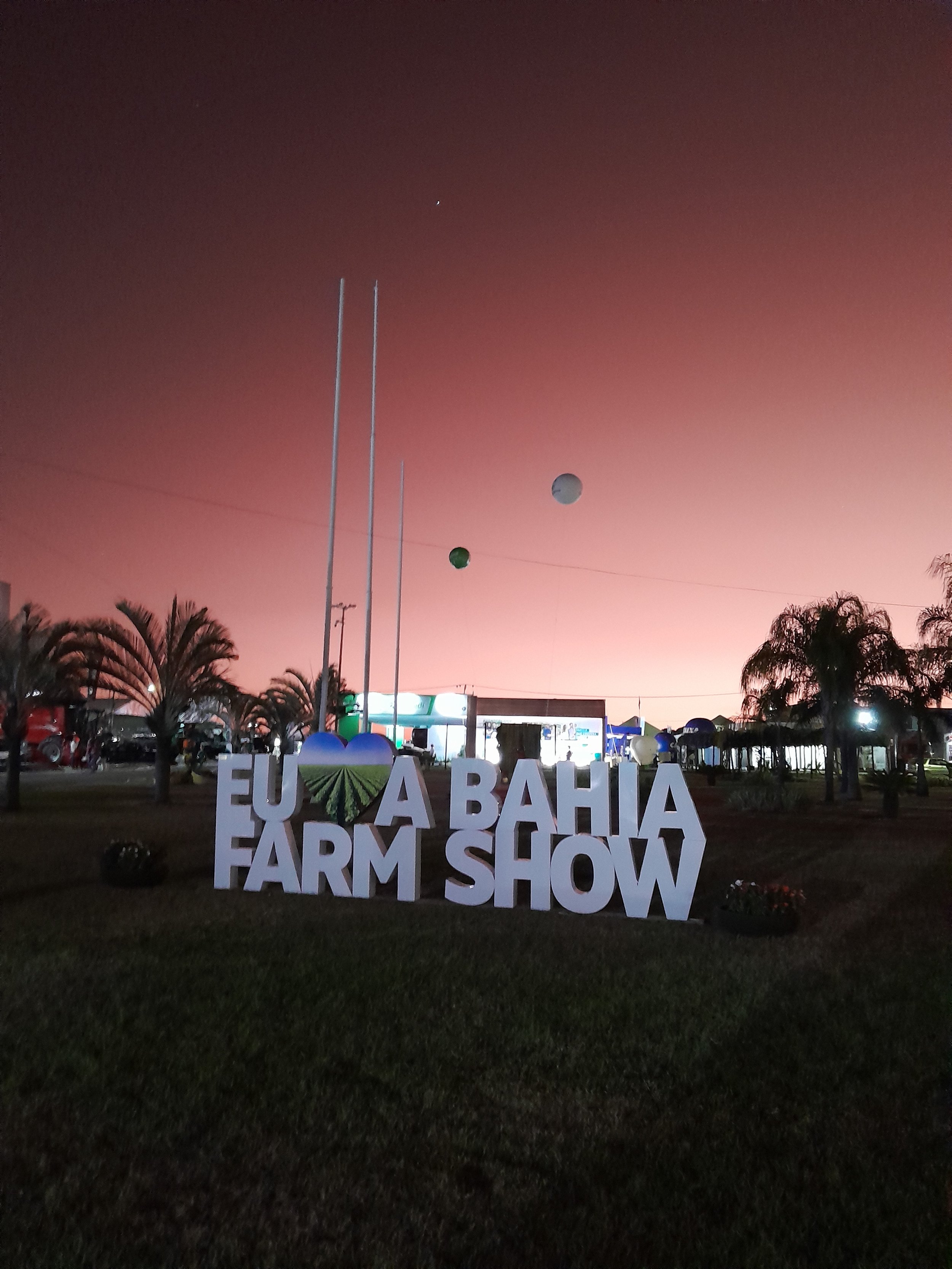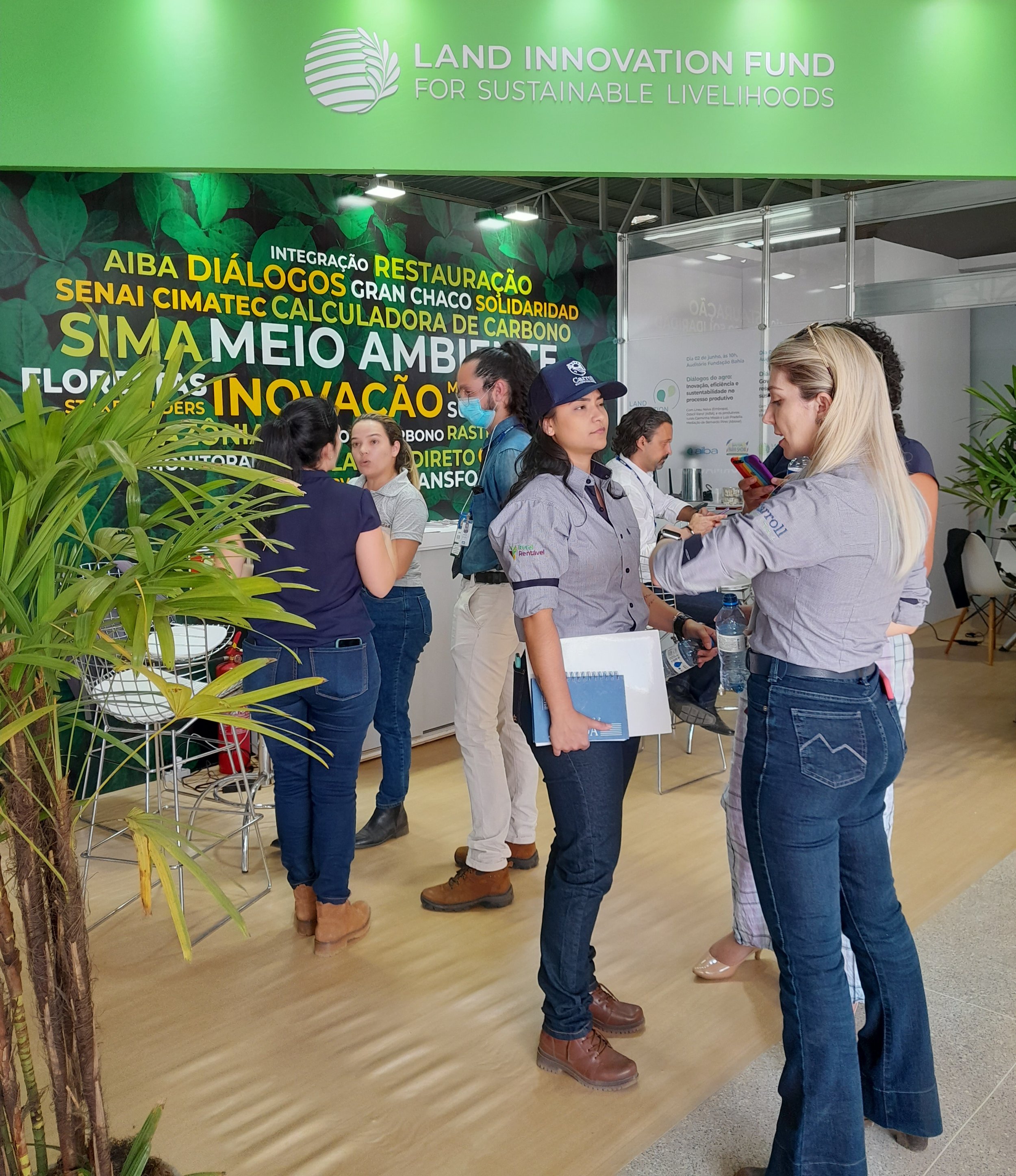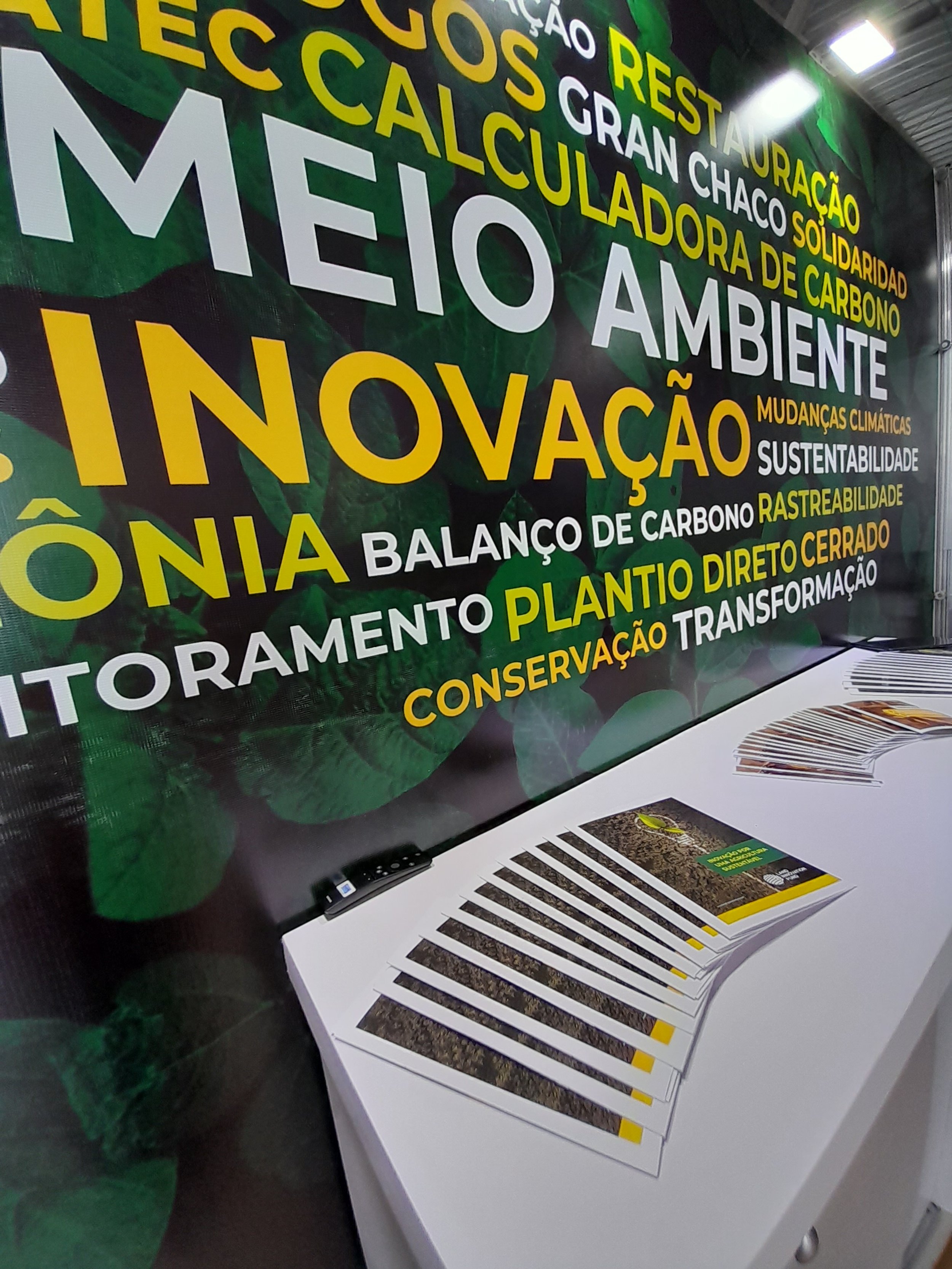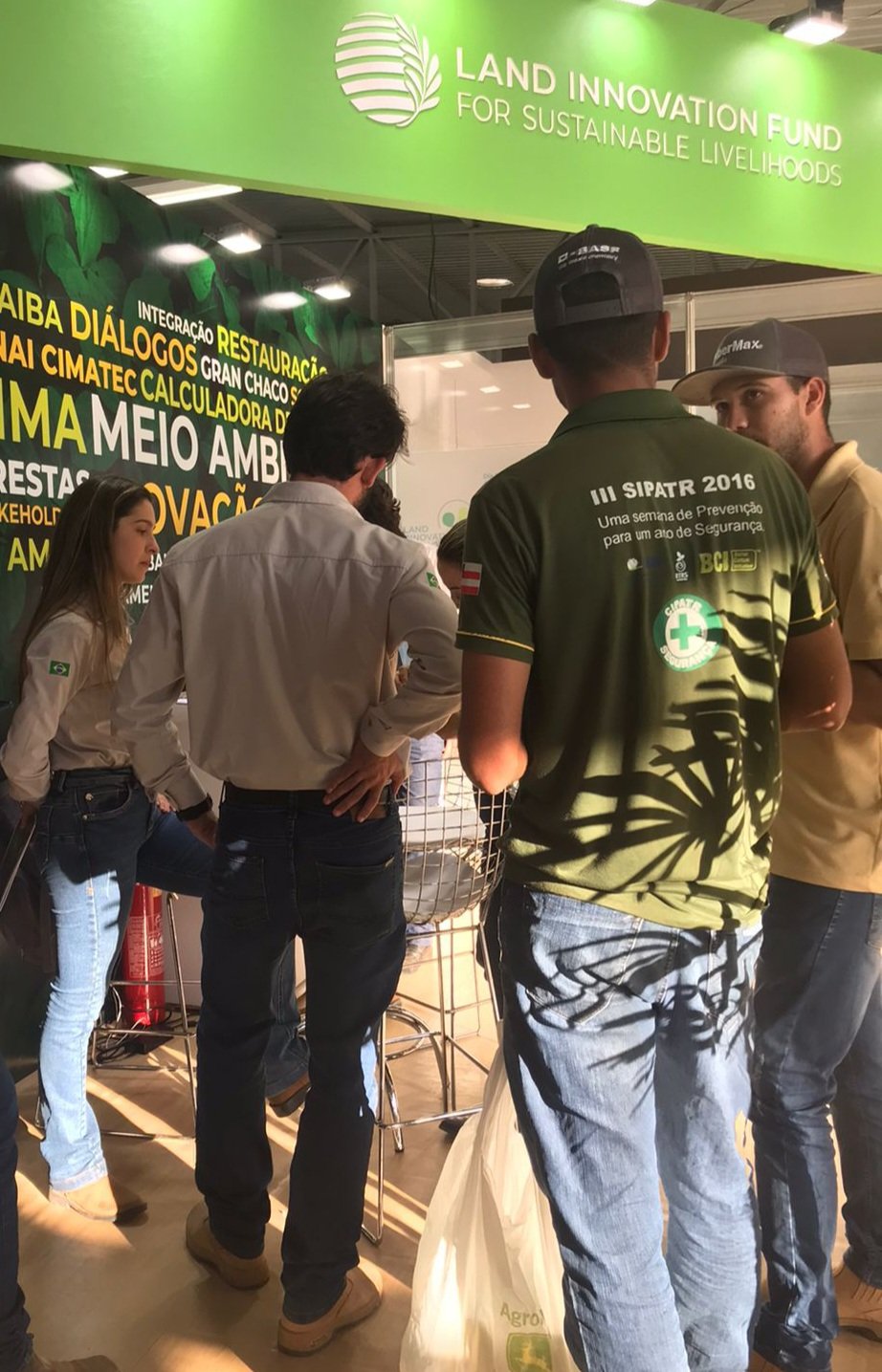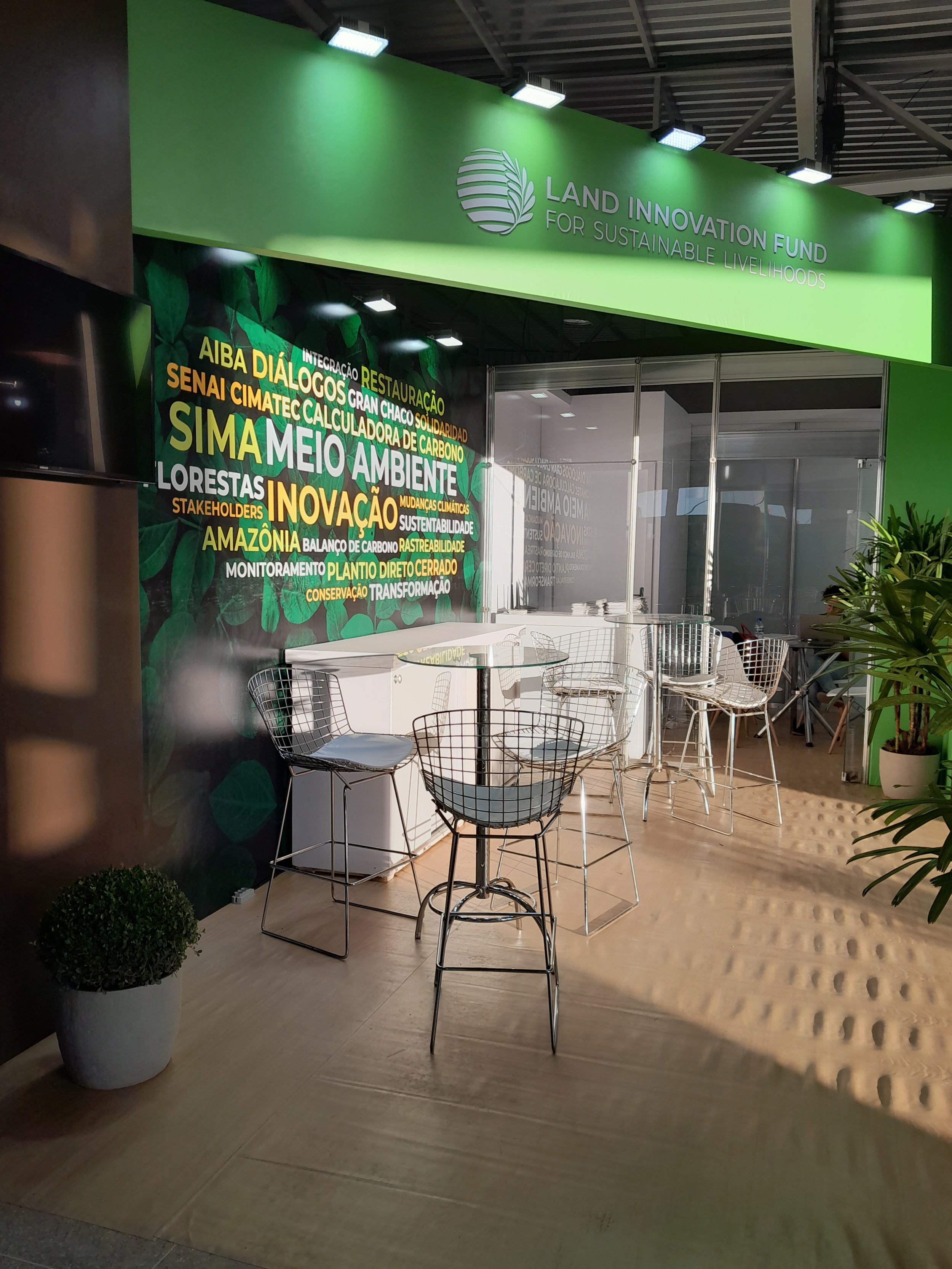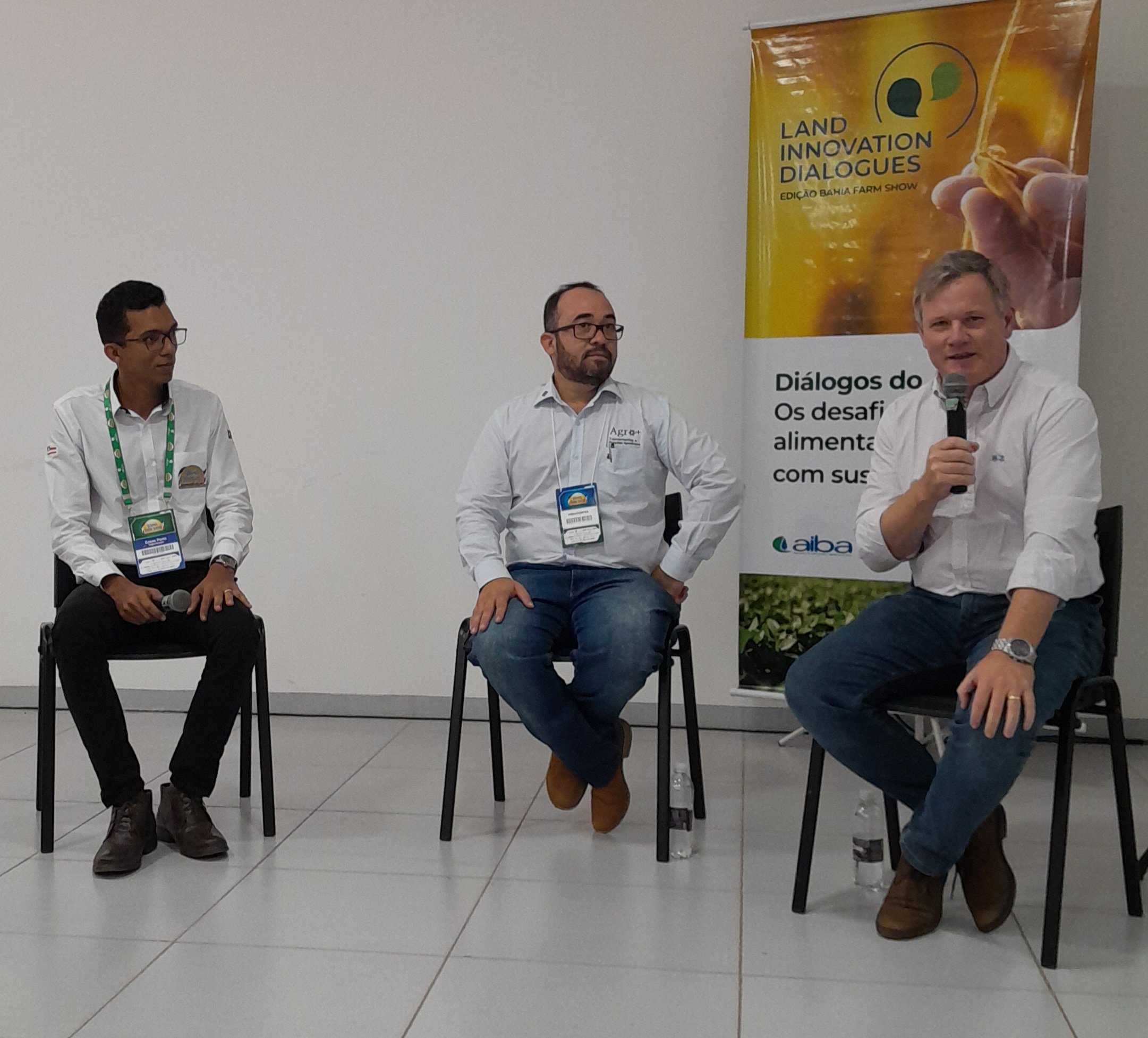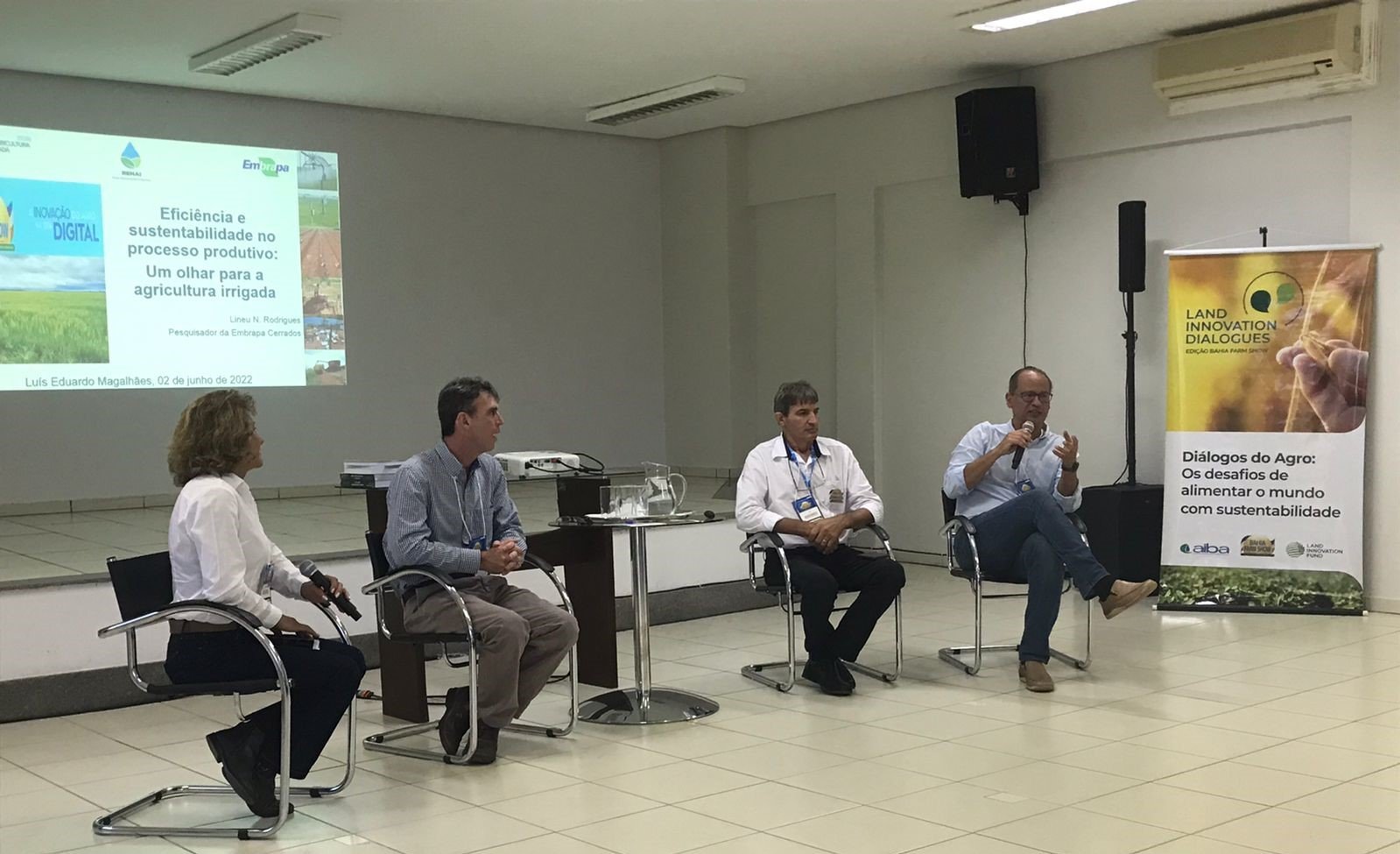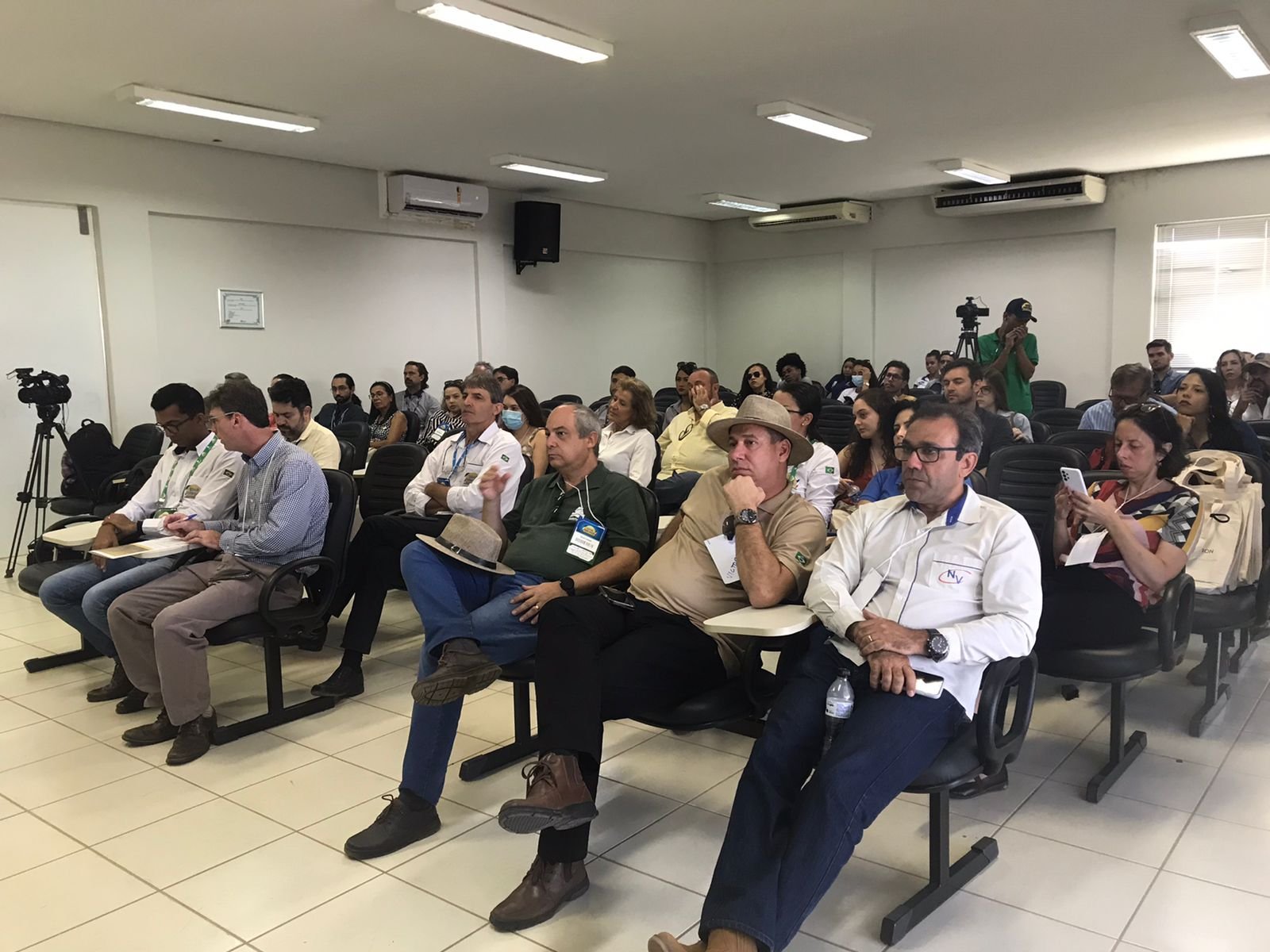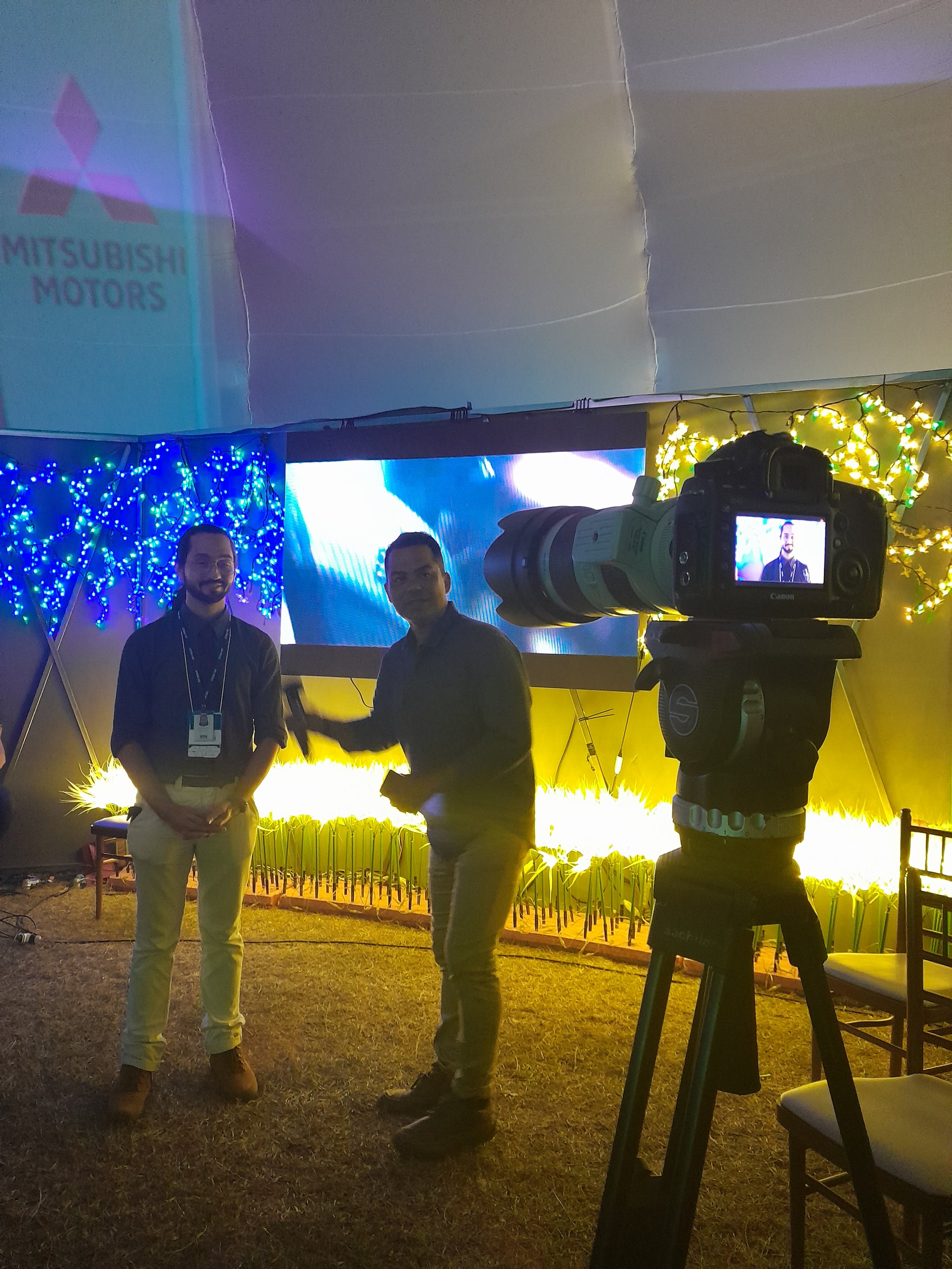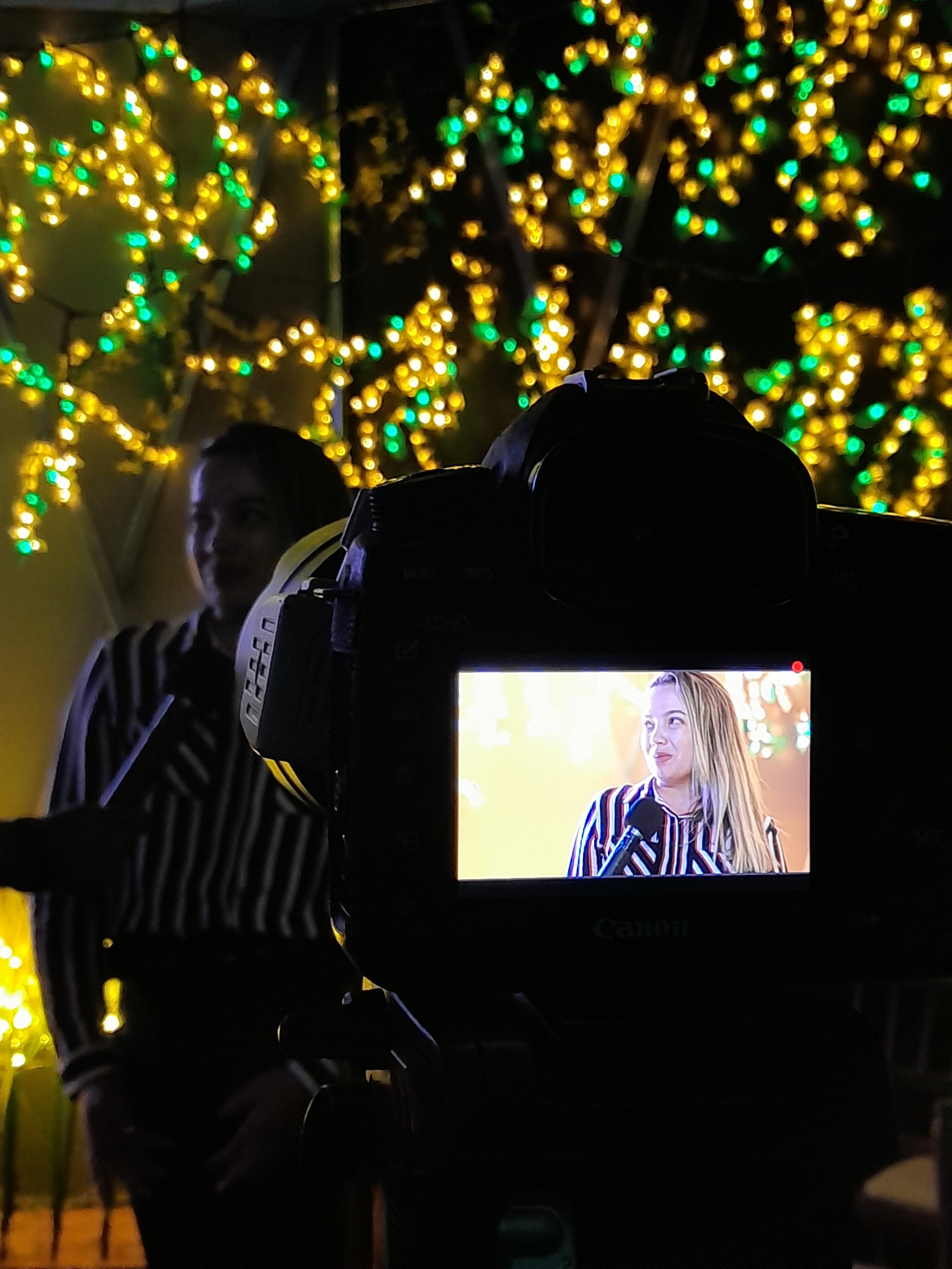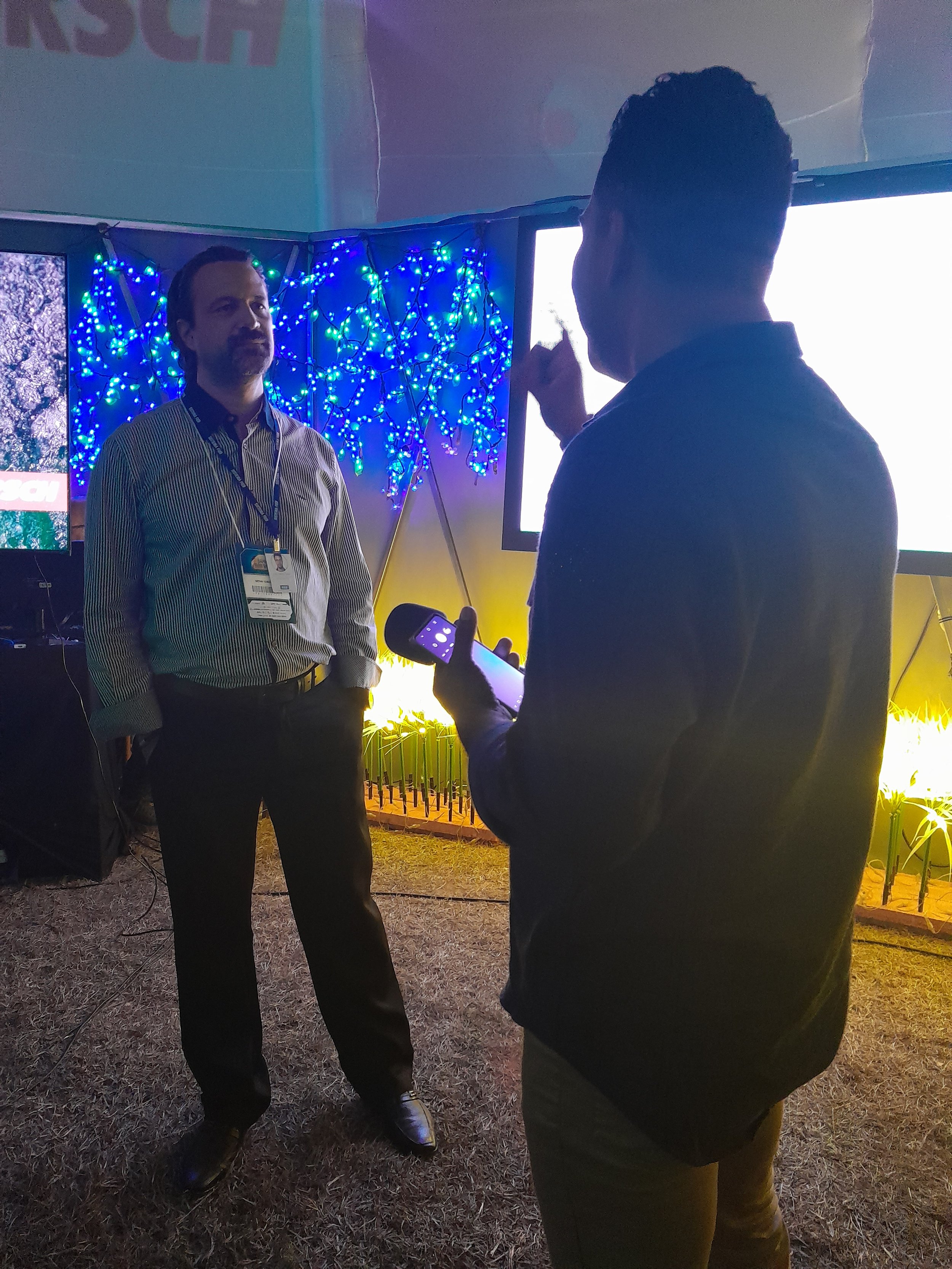Sustainability in debate at the bahia farm show
International fund raises the sustainability debate during events and meetings at one of the country's largest agricultural fairs.
The Bahia Farm Show lasted five days, from May 31 to June 4, in Luiz Eduardo Magalhães, western Bahia, with an abundance of knowledge, meetings, and dialogues at one of Brazil's most important agribusiness fairs. As the only exhibitor promoting an environmental agenda in the whole Fair, the Land Innovation Fund set up a stand to receive partners, farmers, researchers, and other professionals interested in getting to know the portfolio of projects devoted to innovation for sustainable agriculture in the 21st century. The Fund also backed the second cycle of Land Innovation Dialogues, with panels discussing the challenges of feeding the world sustainably, and participated in two other meetings of the official program, at the invitation of the Association of Farmers and Irrigators of Western Bahia (AIBA), to discuss actions and initiatives being implemented in the region.
With 22 partners and 21 projects in its portfolio, the Land Innovation Fund fosters innovative solutions for a sustainable soy supply chain, deforestation-free and with no conversion of native vegetation in three of South America's priority biomes: Cerrado, Gran Chaco, and Amazon. During the Fair, representatives of partner institutions – the Association of Farmers and Irrigators of Western Bahia (AIBA), the Solidaridad Foundation, and Senai Cimatec – joined the Fund's experts to present the projects now underway in the region. "We recognize the importance of Western Bahia for agribusiness and the efforts of local farmers to align the production of some of Brazil's main commodities with international demands for the preservation and restoration of this biome. That is why we have joined efforts and investments in integrated projects that can have positive impacts on the region's soy production chain", says the Land Innovation Fund's director, Carlos E. Quintela. Check out the highlights of the Fund's participation in the Bahia Farm Show below.
The Fair:
Held in Luiz Antônio Magalhães, the city with the highest per capita income in the interior of Bahia and the hub of one of the regions with Brazil's highest agricultural yields, producing more than seven million tons of soybeans per year, the Bahia Farm Show received more than 100,000 visitors during the five-day event, and generated more than 7.9 billion in business.
With the theme "Innovation in agriculture in the digital era", the event brought together farmers, researchers, consultants, and major players in the private sector – from machinery and seed companies to bio-inputs and clean energy, research centers and universities – interested in learning the latest on agricultural markets and doing business.
The stand:
With a 24 m2 stand to receive partners, researchers, consultants, students, and participants in general, the Fund was the only exhibitor at the Fair devoted exclusively to the sustainability and environmental agenda. The space was also a hub for meetings, interaction, and presentations by our partners – the Solidaridad Foundation and Senai Cimatec – who enhance the synergy and reach of the Fund's four projects currently underway in the region.
During the five days of the event, experts from the Fund and its partner institutions at the stand met with visitors interested in learning about the Fund's portfolio of projects and initiatives. In addition, scouting visits to other stands at the Fair helped us identify trends and learn about other projects underway in the region.
Land Innovation Dialogues:
With the theme "Agro dialogues", the Association of Farmers and Irrigators of Bahia (AIBA) organized two face-to-face meetings of the new cycle of Land Innovation Dialogues (LIDs) at the Bahia Farm Show. At the first event, Embrapa Cerrados researcher Lineu Neiva, and the farmers Carminha Missio and Luiz Pradella, talked about the efficient and sustainable use of water resources for agriculture.
Known for the use and dissemination of the no-till farming system in Western Bahia, Pradella stressed the importance of caring for the soil to get better results in the field. "The soil works as a nutrient sponge. Healthy soil improves water infiltration and replenishes the aquifer. It helps boost yields and the number of harvests," he says. Carminha Missio, a leader for sustainable practices in the region, emphasized the importance of science for agricultural development. "People who migrated to Western Bahia in the 1970s and 1980s often heard that the soil here was sterile. Professors and researchers did science in the field, designed new management approaches, and developed key environmental assets to make the region a nationwide benchmark for productivity", she added.
On the second day of the meeting, Bahia State University (UNEB) professor Jorge da Silva Junior spoke with the farmer Eduardo Manjabosco about governance, good agricultural practices, responsibility, and sustainability. The researcher stressed the importance of no-till farming for soil improvement and for low-carbon agriculture in the region. "The soil is a living and necessary system. It needs active microorganisms. Straw management stabilizes the soil and guarantees the best carbon fixation rates in areas cultivated with the no-till system," says Jorge, adding that "We can put Western Bahia on the map with the best carbon sequestration rates in the entire Matopiba region." Manjabosco also emphasized the importance of no-till farming for the region: "We have a plot in our farm that has not been ploughed for 27 years. It's our champion in soybean productivity."
These were the Fair’s only official events to discuss the sustainability agenda. They helped identify topics relevant to the local audience, especially the carbon market and water resource management.
Side-Events:
Besides the LIDs, the Fund was invited to participate in two supplementary meetings at the Fair, both at the Agro & You Space - a 180º tent set up by AIBA and other local associations for interactive exhibits on agribusiness, as well as lectures and video screenings. At the first event, the Fund and its partners presented the partial results, advantages, and benefits of two projects underway in the region: the Western Bahia Territorial and Environmental Intelligence Monitoring System (SIMA, its acronym in Portuguese), and the carbon calculator, developed by Senai Cimatec and the Solidaridad Foundation, respectively. The digital platform will gather public data and general information about the region to assist farmers in making decisions in the field. With features for water resource management, land use, and on-farm carbon calculation, SIMA brings together in a single system information on water use permits, watersheds, road structures, and rainfall, as well as other data to make farms more productive and environmentally efficient. The system also offers a carbon calculator developed by the Solidaridad Foundation, in partnership with the Institute for Forest Management and Certification (IMAFLORA), with support from AIBA, the Carbon Working Group and specialists on the subject. The tool will provide a profile of the region's soy production carbon balance and support the sustainable management of its farms.
At the second event, a video produced at the suggestion of the Fund was the theme for a meeting of prominent local farmers, who told their stories and shared their experiences – as migrants from southern Brazil who became large landowners in western Bahia. "Our beginnings here were all under black tarp shacks. It took three years to get my first wooden shack. The beginning was very difficult, but our courage was even greater. At that time, we had no roads, no electricity, and we had to walk 25km to take a shower, wash clothes, and bring water that had to last until the next Sunday. The city of Barreiras was 125 km away, and we had to hitchhike, because we had no cars", says Odacil Ranzi, current president of the Association of Farmers and Irrigators (AIBA), the institution responsible for the Bahia Farm Show. The video with the testimony by Odacil and other families from the region is the first of a series called "Memories of Agribusiness", which will soon be available on our social networks.

